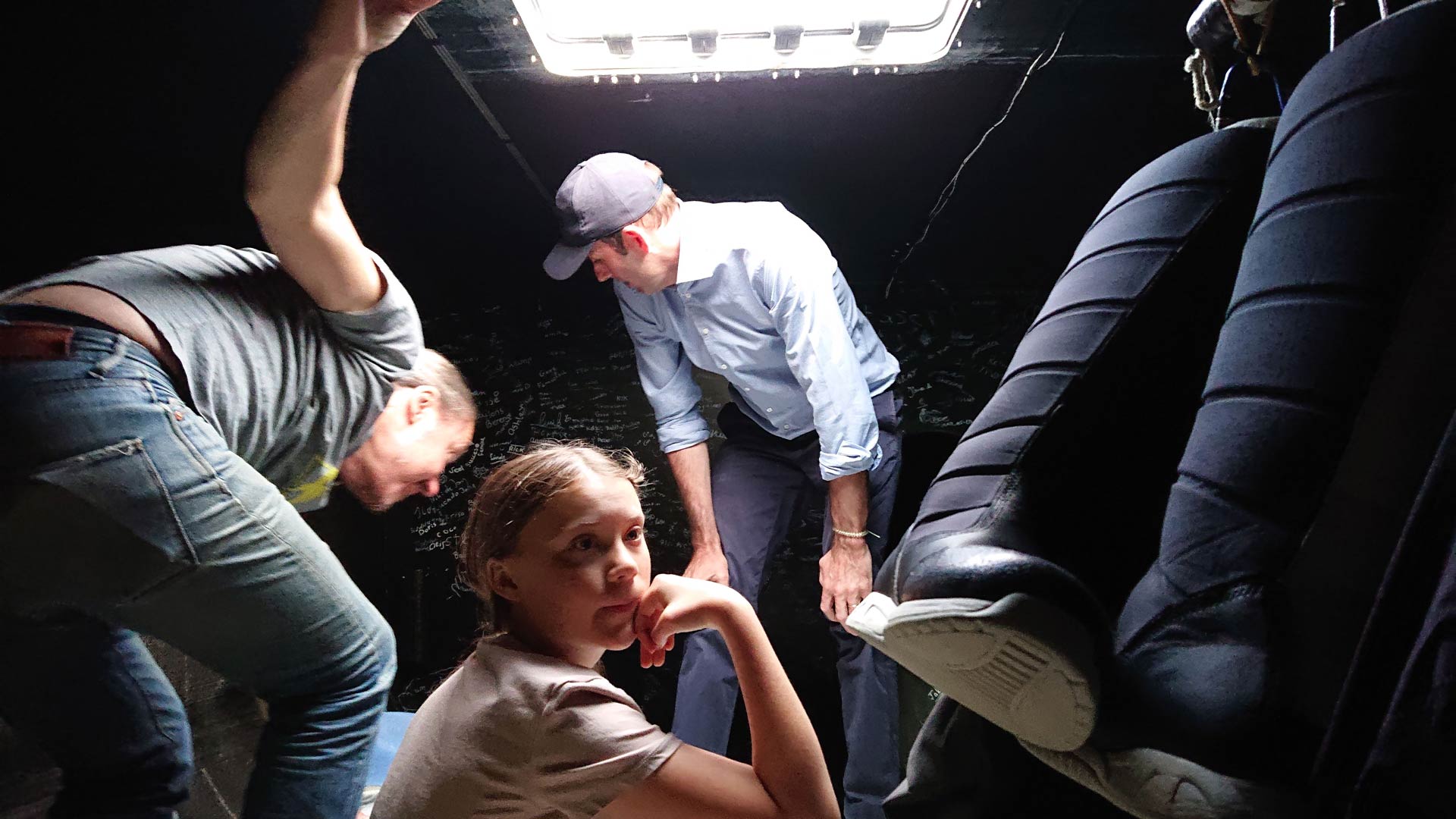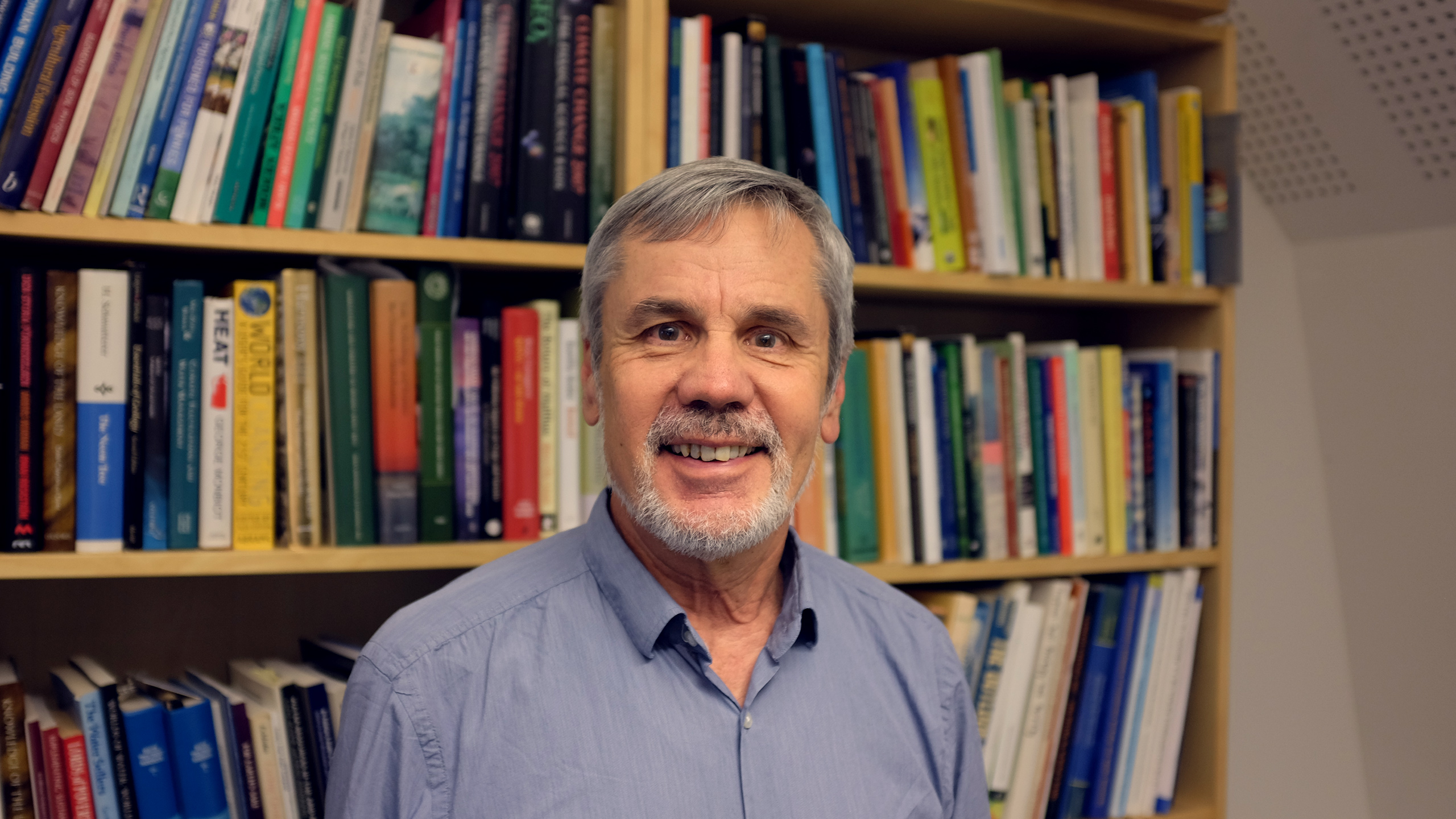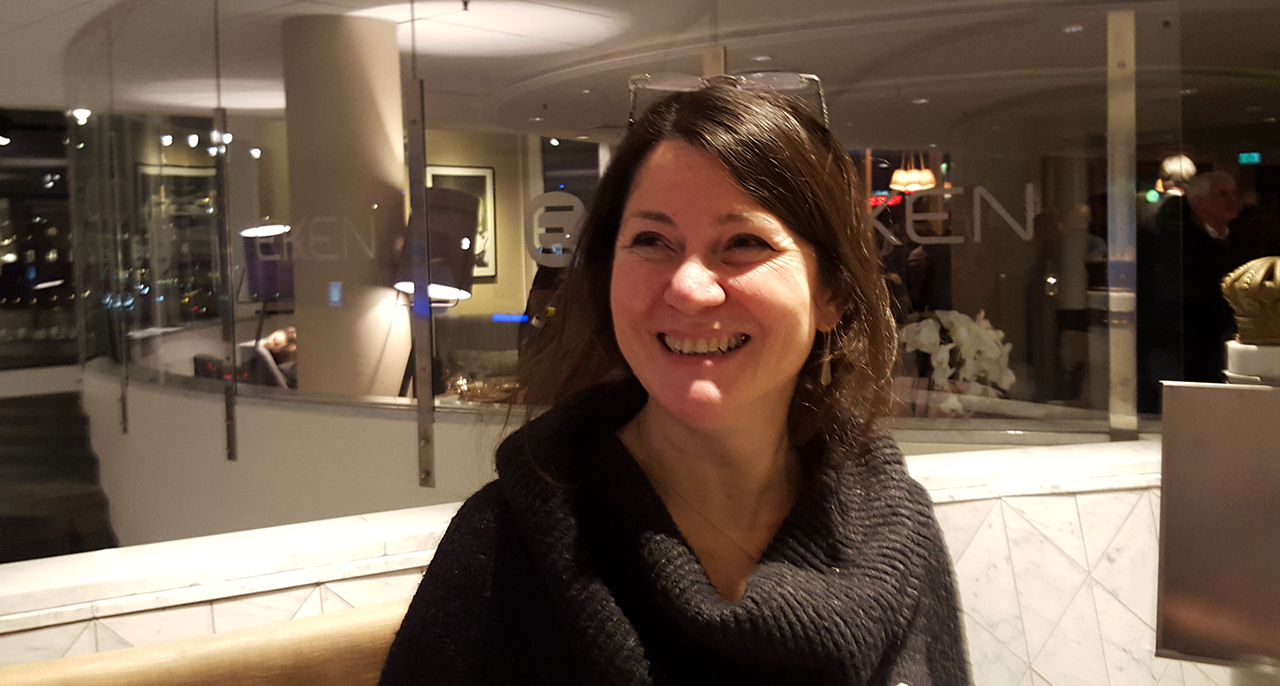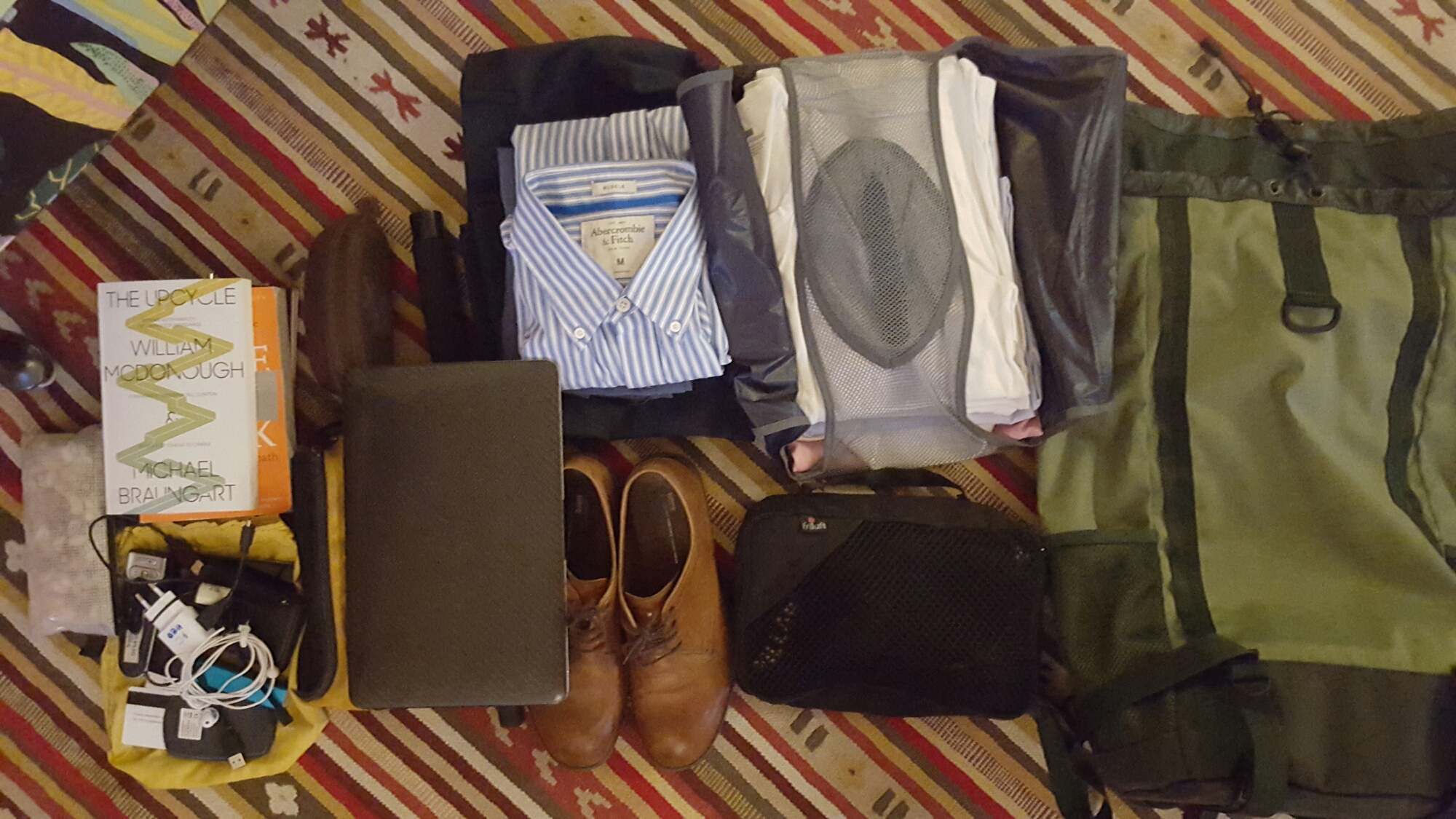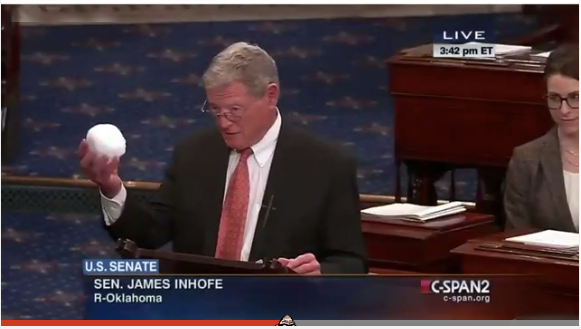Today you will set sail to cross the Atlantic. From Plymouth, England to New York, USA. When you last year started talking about sailing to the UN meeting in USA, you primarily viewed it as a sustainable transport. To do what most other people would have done, arguing that you had an important mission and therefore was justified going by airplane, was never an option for you.
You investigated going with a transport vessel or even to take the eastern way around the globe. For some time the option was the southern route over the Atlantic along with the trade winds. But it is long and this time of the year also include the risk of dealing with hurricanes.
You ended up choosing the northern Atlantic route. It is the shortest distance, not too warm and humid. Well, that is apart from all the moist and water the prevailing westerlies and extratropical cyclones, i.e. low-pressures, cold-fronts and mid-latitude storms, create in interaction with the ocean.
The crux with the northern Atlantic route, going from Europe to America, is that for lion’s share of time you will deal with variations of head-wind due to prevailing westerlies. The northern route is perfect going west to east. But as long as you don’t get stuck in a high-pressure, you will manoeuvre your sailboat to go in whatever direction you want.
There will be many reasons why the sail trip will make a lasting impression on you. Whatever vehicle you have travelled with before, to sail across an ocean is something extra. The first time you sail off-shore, watch the sun rise and set beyond the 360 degree ocean-horizon, experience a cloud-free night where the atmosphere is not polluted be either aerosols or light from surrounding cities, watch millions of stars in the Milky Way, small and large creatures living in the ocean, ride through a storm, pondering all the thoughts and conversations there are time for on board your ship, not to mention when you spot birds and land for the first time after a many days at sea.
The ship itself on the ocean is like a miniature of a society. Whatever tools, knowledge and skills you bring, is what you will have to do with. Of course you can catch some fish, collect rainwater and today also connect knowledge via satellite-communication. But you still have to handle whatever happens with whatever you have brought.
Things break, people get sick and there will be conflicts even over small matters. But on the boat there is no escape. One has to deal with everything. And that in itself is pretty beautiful and illustrative.
In ”the modern” life in cities many people don’t see the connections and relations between people and people, and nature we all depend upon. Neither do many people realize how changes in climate and ecosystems far away from them will impose changes to their life, today and in the future. But on a sailboat it is obvious, because everything is short distance and connected. There is a reason for the proverb ”to be in the same boat”.
The earth is round and there is no risk of falling over any edge when sailing towards the horizon, no matter how far one goes. But using geometry as a metaphor, there are slippery slopes and the world is about to accelerate along one or more of those. Science communicated this decades ago -and had societies acted promptly then, for example around the time for the first report from IPCC 1990, or why not in the 70’s when Limits to Growth was published and we had the first large oil-crisis?, we wouldn’t be in the climate crisis we are in today.
Today we make fun of people who claimed (some still claim!) the earth is flat. In the future people will blame and sue those who today are in the business of actively denying and counteracting the scientific knowledge about anthropogenic climate change and other man-made global changes, threatening resilient ecosystems and societies.
But many people understand the science and are concerned. However a lot think that their capacity to make a significant impact and change the devastating trajectory is too small. But then someone thought and said ”no one is too small to make a difference” 😉 Thank you.
Science is clear. Momentum among people grow. Humanity need to transform, or we will loose biodiversity, resilience, species and infrastructure beyond the carrying capacity of ecosystems and our societies. Systems collapse all the time, but we drive unprecedented changes and intensified collapses. It will force us, and all other life on the planet, into very uncomfortable adaptation. Individuals, eventually societies, suffer and die. Therefore, failure to mitigate the driving forces promptly, is not an option.
Every year of inaction, i.e. business as usual and continued emissions of greenhouse gases, we loose two years. The year of inaction and a year on the other side of the carbon budget. Every year of inaction we make the necessary transformation harder as the rate of change has to increase in order for us to stay within the budget.
Greta, you will have a very interesting, intensive and important year in America. But before that, starting this afternoon, take the opportunity to enjoy your journey with Malizia II, the crew and the ocean as you read the sky and manoeuvre your ship with a deepening understanding and relation to nature.
With kind regards,
/Martin Hedberg
The image was taken June 29, 2019 in Stockholm as Greta was doing her research and was invited to see the interior of a VO65. Also in the image, Gretas father Svante Thunberg and Richard Brisius, The Ocean Race.
Greta and crew will sail Malizia II with Boris Herrmann, an IMOCA 60.
